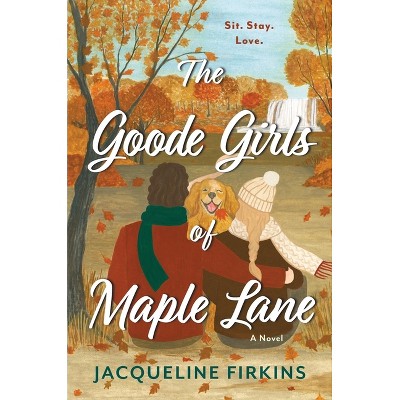Sponsored

Agrotopias - by Abby L Goode (Paperback)
$34.95Save $2.55 (7% off)
In Stock
Eligible for registries and wish lists
Sponsored
About this item
Highlights
- In this book, Abby L. Goode reveals the foundations of American environmentalism and the enduring partnership between racism, eugenics, and agrarian ideals in the United States.
- Author(s): Abby L Goode
- 294 Pages
- Social Science,
Description
About the Book
"In this book, Abby L. Goode reveals the foundations of American environmentalism and its enduring connections to racism, eugenics, and agrarian ideals. Throughout the nineteenth century, writers as diverse as Martin Delany, Charlotte Perkins Gilman, and Walt Whitman worried about unsustainable conditions such as population growth and plantation slavery. In response, they imagined 'agrotopias'-sustainable societies unaffected by the nation's agricultural and population crises-elsewhere. Though seemingly progressive, these agrotopian visions depicted selective breeding and racial 'improvement' as the path to environmental stability. In this fascinating study, Goode uncovers an early sustainability rhetoric interested in shaping, just as much as sustaining, the American population"--Book Synopsis
In this book, Abby L. Goode reveals the foundations of American environmentalism and the enduring partnership between racism, eugenics, and agrarian ideals in the United States. Throughout the nineteenth century, writers as diverse as Martin Delany, Charlotte Perkins Gilman, and Walt Whitman worried about unsustainable conditions such as population growth and plantation slavery. In response, they imagined agrotopias--sustainable societies unaffected by the nation's agricultural and population crises--elsewhere. Though seemingly progressive, these agrotopian visions depicted selective breeding and racial "improvement" as the path to environmental stability. In this fascinating study, Goode uncovers an early sustainability rhetoric interested in shaping, just as much as sustaining, the American population.Showing how ideas about race and reproduction were central to early sustainability thinking, Goode unearths an alternative environmental archive that ranges from gothic novels to Black nationalist manifestos, from Waco, Texas, to the West Indies, from city tenements to White House kitchen gardens. Exposing the eugenic foundations of some of our most well-regarded environmental traditions, this book compels us to reexamine the benevolence of American environmental thought.
Review Quotes
"Agrotopias is a rich and compelling study of how agrarianism was central to ideas of national and communal 'sustainability' during the long nineteenth century, and how its assumptions and values persist in sustainability rhetoric today."--ALH Review
"A stellar argument . . . an ambitious, important intervention in sustainability rhetoric over a 300-year period."--ISLE: Interdisciplinary Studies in Literature and Environment
"A valuable contribution to understanding the history of American environmental thought through its literary output during the 19th and early 20th centuries. . . . Recommended."--CHOICE
"An important addition to a broader wave of scholarship . . . [that] provide[s] readers with an understanding of how the material, political, and cultural components of American agrarian thought took hold in nineteenth-century society."--H-Environment
"By adding Goode's analysis of sustainability rhetoric, it is possible to get a fuller picture of the ways nineteenth-century Americans made sense of their moment in time in order to make things better in the future. . . . Agrotopias shows readers that like the environmental movement, sustainability has a long history and one that has never been divorced from social problems and power dynamics."-American Historical Review
"Compelling and astute. . . . [A] well-written, deftly argued, and much needed reconsideration of the development of nineteenth-century American agricultural and environmental imagination."--New England Quarterly
"In this important, well-executed study . . . Goode has chosen a fascinating combination of literary works to consider. . . . In her consistently striking readings of these texts, Goode traces the nuanced yet potent ways in which sustainability rhetoric (and its whole conceptual scaffolding) evolved from the Revolutionary Era through the Progressive Era."--Early American Literature
"Rich and compelling. . . . [A]n essential intervention into the history of US environmental thought, one that insists we reconsider the simple progressive goodness typically accorded to agrarianism and its legacies."--American Literary History
Dimensions (Overall): 9.21 Inches (H) x 6.14 Inches (W) x .66 Inches (D)
Weight: 1.0 Pounds
Suggested Age: 22 Years and Up
Number of Pages: 294
Genre: Social Science
Publisher: University of North Carolina Press
Theme: American, General
Format: Paperback
Author: Abby L Goode
Language: English
Street Date: September 20, 2022
TCIN: 91596887
UPC: 9781469669823
Item Number (DPCI): 247-35-4036
Origin: Made in the USA or Imported
If the item details aren’t accurate or complete, we want to know about it.
Shipping details
Estimated ship dimensions: 0.66 inches length x 6.14 inches width x 9.21 inches height
Estimated ship weight: 1 pounds
We regret that this item cannot be shipped to PO Boxes.
This item cannot be shipped to the following locations: American Samoa (see also separate entry under AS), Guam (see also separate entry under GU), Northern Mariana Islands, Puerto Rico (see also separate entry under PR), United States Minor Outlying Islands, Virgin Islands, U.S., APO/FPO
Return details
This item can be returned to any Target store or Target.com.
This item must be returned within 90 days of the date it was purchased in store, shipped, delivered by a Shipt shopper, or made ready for pickup.
See the return policy for complete information.











